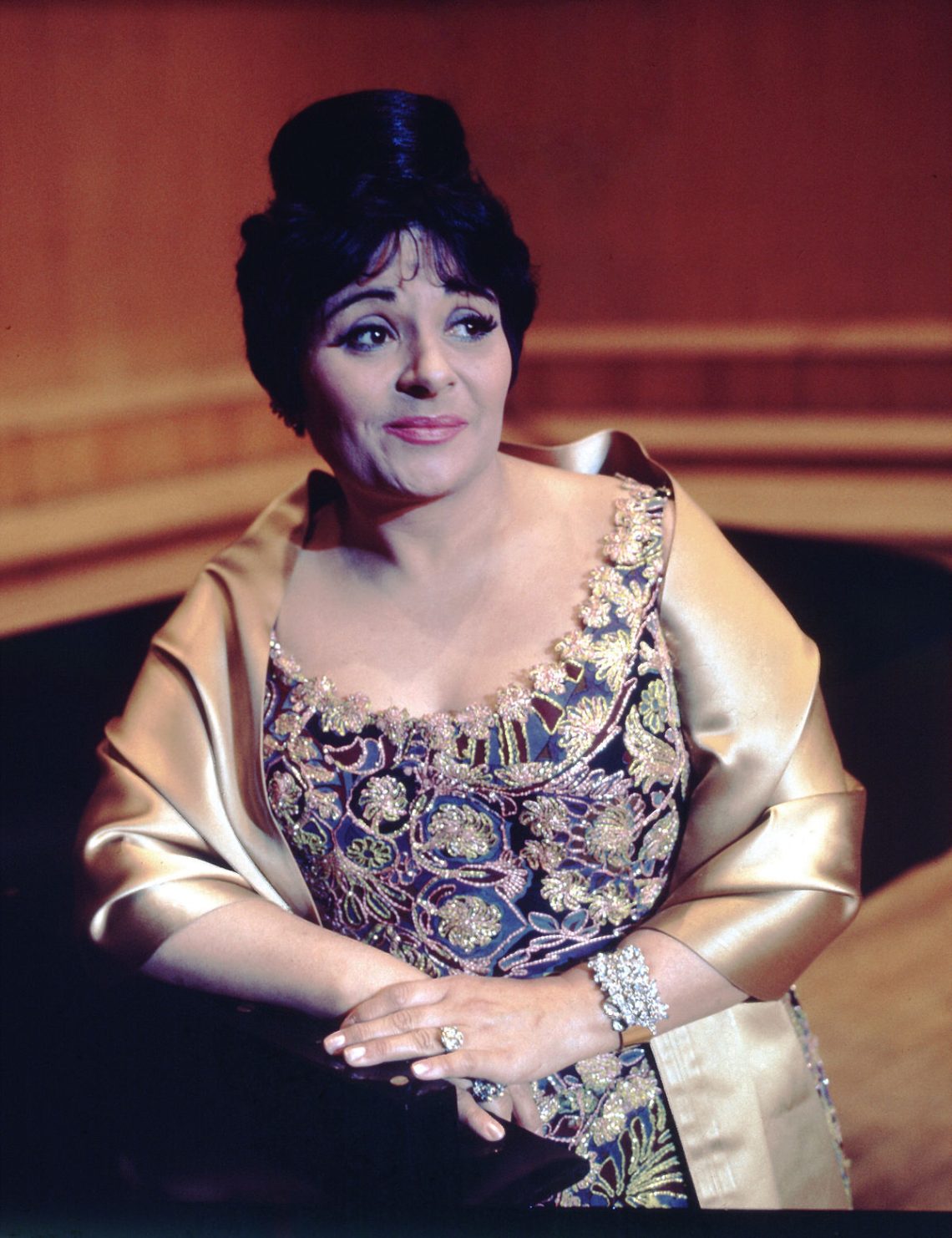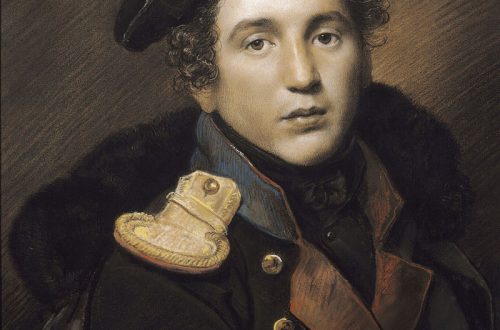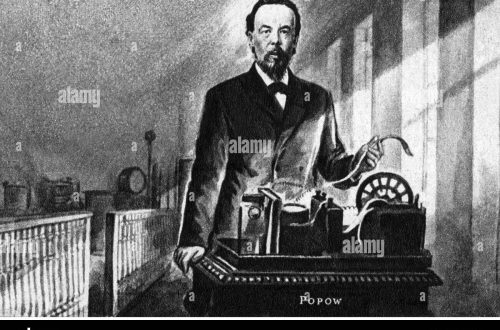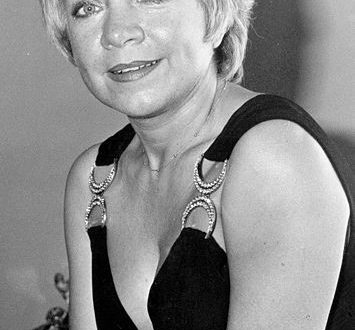
Victoria de Los Angeles |
Los Angeles Victory
Victoria de Los Angeles was born on November 1, 1923 in Barcelona, in a very musical family. Already at an early age, she discovered great musical abilities. At the suggestion of her mother, who had a very good voice, young Victoria entered the Barcelona Conservatory, where she began to study singing, playing the piano and guitar. Already the first performances of Los Angeles at student concerts, according to eyewitnesses, were the performances of the master.
The debut of Victoria de Los Angeles on the big stage took place when she was 23 years old: she sang the part of the Countess in Mozart’s Marriage of Figaro at the Liceo Theater in Barcelona. This was followed by a victory at the most prestigious vocal competition in Geneva (Geneva competition), in which the jury listens to the performers anonymously, sitting behind the curtains. After this victory, in 1947, Victoria received an invitation from the BBC radio company to take part in the broadcast of Manuel de Falla’s opera Life is Short; the magnificent performance of the role of Salud provided the young singer with a pass to all the leading stages of the world.
The next three years bring Los Angeles even more fame. Victoria made her debut at the Grand Opera and the Metropolitan Opera in Gounod’s Faust, Covent Garden applauded her in Puccini’s La Bohème, and the discerning La Scala audience enthusiastically greeted her Ariadne in Richard Strauss’ opera. Ariadne on Naxos. But the stage of the Metropolitan Opera, where Los Angeles performs most often, becomes the base platform for the singer.
Almost immediately after her first successes, Victoria signed a long-term exclusive contract with EMI, which determined her further happy fate in sound recording. In total, the singer has recorded 21 operas and more than 25 chamber programs for EMI; most of the recordings were included in the golden fund of vocal art.
In the performing style of Los Angeles there was no tragic breakdown, no monumental grandeur, no ecstatic sensuality – everything that usually drives an exalted opera audience crazy. Nevertheless, many critics and simply opera lovers speak of the singer as one of the first candidates for the title of “soprano of the century”. It is difficult to determine what kind of soprano it was – lyric-dramatic, lyric, lyric-coloratura, and perhaps even a high mobile mezzo; none of the definitions will turn out to be correct, because for a variety of voices Manon’s gavotte (“Manon”) and the romance of Santuzza (“Country honor”), Violetta’s aria (“La Traviata”) and Carmen’s divination (“Carmen”), Mimi’s story ( “La Bohème”) and a greeting from Elizabeth (“Tannhäuser”), songs by Schubert and Fauré, Scarlatti’s canzones and Granados’ goyesques, which were in the singer’s repertoire.
The very notion of a Victorian conflict was foreign. It is noteworthy that in ordinary life the singer also tried to avoid acute situations, and when they arose, she preferred to flee; so, due to disagreements with Beecham, instead of a stormy showdown, she simply took and left in the midst of the Carmen recording session, as a result of which the recording was completed only a year later. Perhaps for these reasons, the operatic career of Los Angeles lasted much less than her concert activity, which did not stop until recently. Among the singer’s relatively late works in opera, one should note the perfectly matched and equally beautifully sung parts of Angelica in Vivaldi’s Furious Roland (one of the few Los Angeles recordings made not on EMI, but on Erato, conducted by Claudio Shimone) and Dido in Purcell’s Dido and Aeneas (with John Barbirolli at the conductor’s stand).
Among those who took part in the concert in honor of the 75th anniversary of Victoria de Los Angeles in September 1998, there was not a single vocalist – the singer herself wanted so. She herself could not attend her own celebration due to illness. The same reason prevented the visit of Los Angeles to St. Petersburg in the fall of 1999, where she was to become a jury member of the Elena Obraztsova International Vocal Competition.
A few quotes from interviews with the singer from different years:
“I once spoke with friends of Maria Callas, and they said that when Maria appeared at the MET, her first question was: “Tell me what Victoria really likes?” Nobody could answer her. I had such a reputation. Because of your aloofness, distance, you understand? I disappeared. No one knew what was happening to me outside the theater.
I have never been to restaurants or nightclubs. I just worked at home alone. They only saw me on stage. No one could even know how I feel about anything, what my beliefs are.
It was truly terrible. I lived two completely separate lives. Victoria de Los Angeles – opera star, public figure, “the healthy girl of the MET”, as they called me – and Victoria Margina, an unremarkable woman, loaded with work, like everyone else . Now it seems to be something exceptional. If I were in that situation again, I would behave completely differently.”
“I have always sung the way I wanted to. Despite all the talk and all the claims of the critics, no one has ever told me what to do. I never saw my future roles on stage, and then there were practically no major singers who would come to perform in Spain immediately after the war. So I couldn’t model my interpretations on any pattern. I was also lucky that I had the opportunity to work on the role on my own, without the help of a conductor or director. I think that when you are too young and inexperienced, your individuality can be destroyed by those people who control you like a rag doll. They want you in one role or another to be more of a realization of themselves, and not of yourself.”
“For me, giving a concert is something very similar to going to a party. When you get there, you almost immediately understand what kind of atmosphere is developing that evening. You walk, communicate with people, and after a while you finally realize what you need from this evening. It’s the same with a concert. When you start to sing, you hear the first reaction and immediately understand which of those gathered in the hall are your friends. You need to establish close contact with them. For example, in 1980 I was playing at the Wigmore Hall and I was very nervous because I was unwell and almost ready to cancel the performance. But I went on stage and, to overcome my nervousness, I turned to the audience: “You can clap, of course, if you want,” and they wanted to. Everyone immediately relaxed. So a good concert, like a good party, is an opportunity to meet wonderful people, relax in their company and then go about your business, keeping the memory of the great time spent together.”
The publication used an article by Ilya Kukharenko





